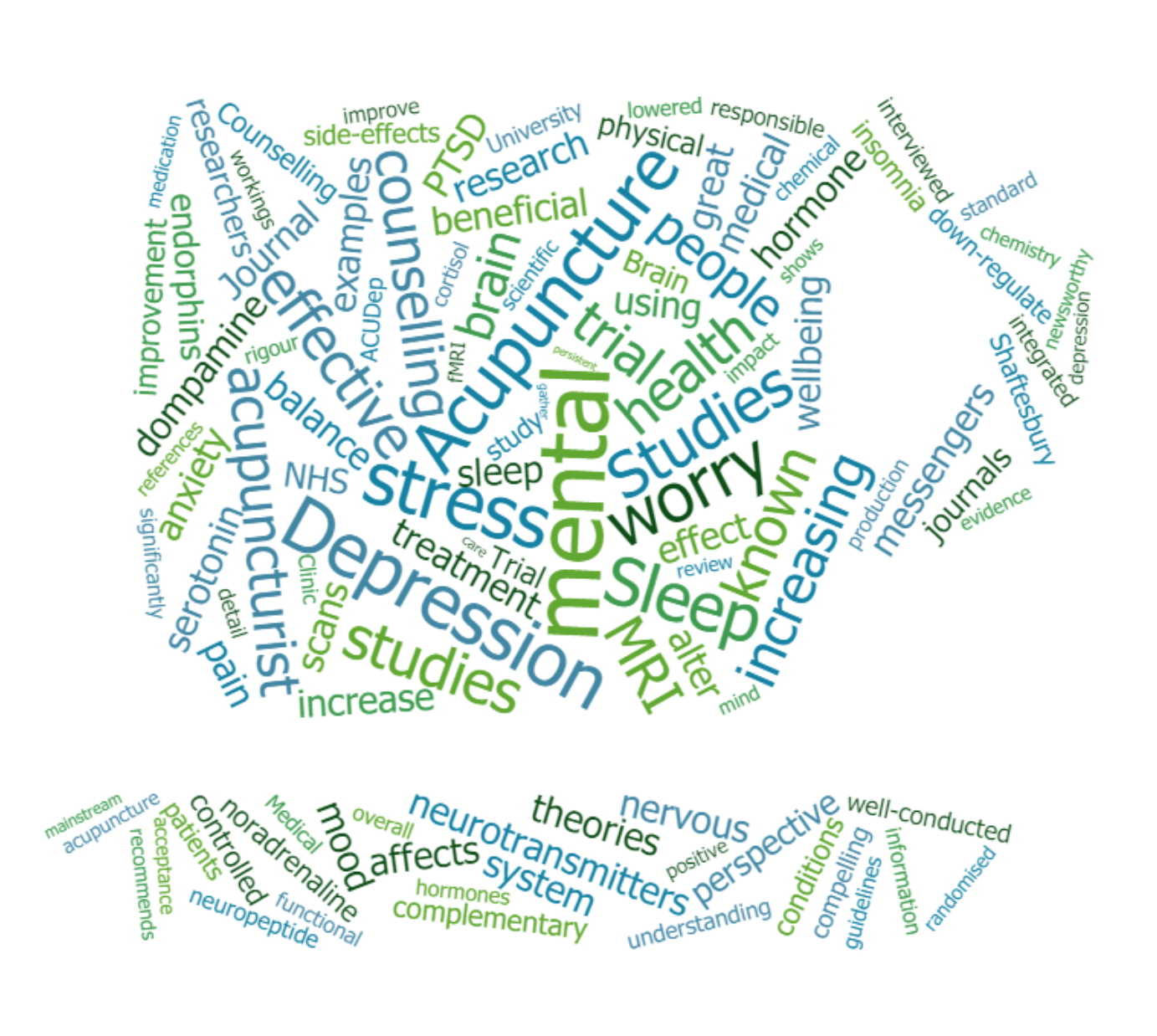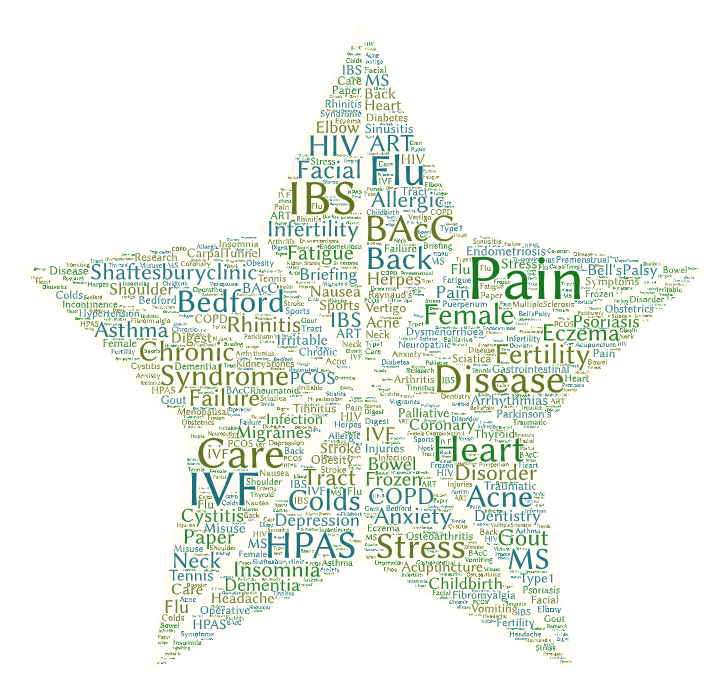by Helen Smallwood, Shaftesbury Clinic
This blog post will concentrate on the use and research regarding acupuncture and mental health, and with a particular focus on depression.
Important to know: Chronic health conditions should be addressed under direct medical supervision of your GP or consultant, and acupuncture would be an adjunct or complement to usual care – we advise that you let you doctor know when you use this approach.
Acupuncture is known by many as being holistic, which means it looks at the workings of the body and the mind overall in an integrated way, as opposed to seeing them as separate entities. Some people are surprised to the extent to which acupuncture has been used and researched for mental health as their first impression is that acupuncture is a very physical therapy and they are mainly associating it with its uses for pain and injuries.
On a research database search, “acupuncture” + “mental health” yields over 48,000 hits of academic articles, 5,600 of which are “RCT”‘s (Randomised Controlled Trials) which are a high standard of research comparing acupuncture to another procedure, an inert control or “sham acupuncture” intervention. Finding that of these 5,600 studies, 43% have been carried out since 2017 shows that wide and increasing scientific research is ongoing in this area.


